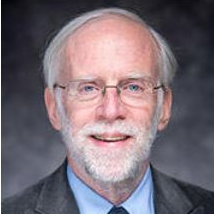European Perspectives on the New Comparative Theology
A special issue of Religions (ISSN 2077-1444).
Deadline for manuscript submissions: closed (31 August 2012) | Viewed by 77487
Special Issue Editors
Interests: classical Hinduism in the Sanskrit and Tamil traditions; comparative Christian-Hindu theology; Christian missionary encounters with Asia religions
Special Issue Information
Dear Colleagues,
Comparative theology is a field with a lineage as long as the earliest efforts by believers to engage, understand, learn from and critique other religions. In the 1980s and 1990s, scholars revived the field as timely in light of today’s religious diversity. They have given it some new characteristics, tried new methods, and argued for fresh implications, and thus in a real sense reinvented the discipline, affording new energy to the study of religions in practice and in the particular, without undue a priori attention to theoretical presuppositions and issues of method. Now younger theologians in different traditions have further interrogated its presumptions and practices and brought it into conversation with post-colonialism, gender studies, ethnographic research, and a (re)turn to theologies of religious pluralism. This thematic issue focuses on the European context to see how this new field has been received, understood, and critiqued among scholars writing in Europe.
Helpful recent secondary sources include Francis X Clooney’s Comparative Theology (2010), and his edited volume, with contributions from younger scholars, The New Comparative Theology (2010).
Prof. Dr. Francis X. Clooney
Dr. John Berthrong
Guest Editors
Keywords
- comparative
- theology
- religious reading
- practice
- particularit
Benefits of Publishing in a Special Issue
- Ease of navigation: Grouping papers by topic helps scholars navigate broad scope journals more efficiently.
- Greater discoverability: Special Issues support the reach and impact of scientific research. Articles in Special Issues are more discoverable and cited more frequently.
- Expansion of research network: Special Issues facilitate connections among authors, fostering scientific collaborations.
- External promotion: Articles in Special Issues are often promoted through the journal's social media, increasing their visibility.
- e-Book format: Special Issues with more than 10 articles can be published as dedicated e-books, ensuring wide and rapid dissemination.
Further information on MDPI's Special Issue policies can be found here.







